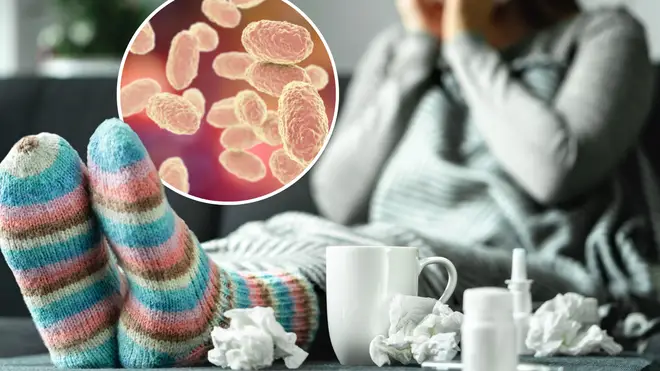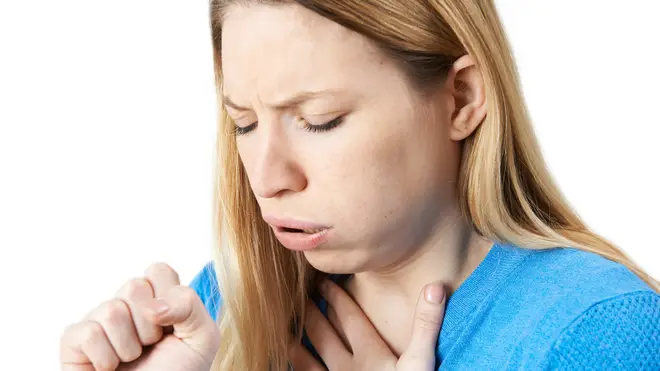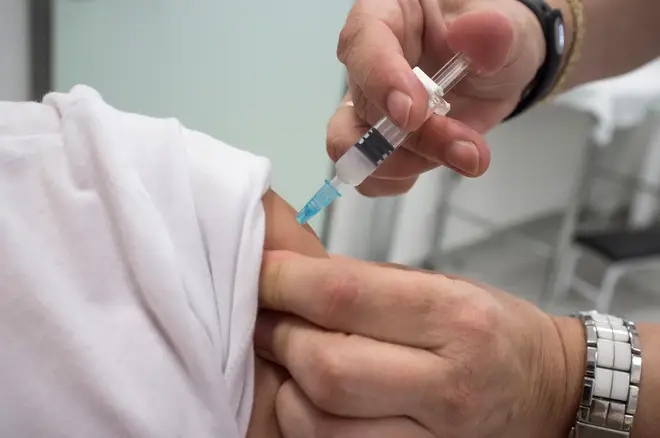On Air Now
Heart Breakfast with Jamie Theakston and Zoe Hardman 6:30am - 10am
8 December 2023, 16:49

This highly contagious bacterial infection is on the rise – and pregnant women, babies and young children are particularly at risk.
Britain is being hit with a bout of whooping cough as a 250% spike of the nasty infection has been recorded in the UK.
Cases are continuing to rise in England and Wales, with more than 700 people contracting the highly contagious '100-day cough' in recent months – triple the number compared to the same period last year, according to the UK Health Security Agency.
Medical experts have weighed in on the outbreak, urging people to be aware of the symptoms, particularly pregnant women and parents of babies and young children.
So what exactly is whooping cough? What are the symptoms? And how is it treated? Here we break down the health details.
The 100-day cough, also known as whooping cough, is a bacterial infection of the lungs and breathing tubes.
Referred to medically as pertussis, the highly contagious respiratory disease can cause serious problems in babies, young children and pregnant women.
It is known mostly for its violet coughing fits which are often uncontrollable and make it tricky to breathe.
London School of Hygiene and Tropical Medicine Professor Beate Kampmann told the Sun: "The rise in cases might be because of missed vaccination appointments, possibly during the pandemic.
"Severe disease is almost entirely preventable if the mother is vaccinated in pregnancy and her protective antibodies reach the baby through the placenta and protect until the baby gets its own vaccines.
"It is therefore important that everyone looks at their vaccination records to check if they might have missed this vaccine, which is given with the routine childhood immunisations and in pregnancy."

The NHS states the "first signs of whooping cough are similar to a cold, such as a runny nose and sore throat".
The health institution says that after about a week you can expect:
The cough itself can last for several weeks but often lingers for months, which is why it is referred to as the 100-day cough.

Hospital treatment is usually necessary if the infection is severe or the patient is a baby under six months old.
If whooping cough is diagnosed within three weeks of someone becoming infected, they will be given antibiotics.
The NHS states this treatment should help the sufferer fight the infection, plus prevent it spreading to other people.
Although symptoms can stretch across months, those who have been infected for over three weeks are no longer contagious and do not need antibiotics.
The NHS suggests phoning 111 if:
The infection can be especially dangerous in infants under six months old and can increase problems such as:
It is less severe in older kids and adults but can still cause:

The NHS states you should call 999 if: